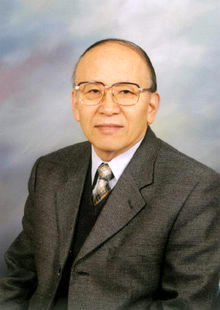 |
|
Byun Kwang-soo
|
By Pyun Kwang-soo, professor at Korea University of Foreign Studies
I remember being shocked by two things when I travelled through several European countries two weeks ago. The first was that I did not expect to meet so many Korean tourists. Koreans were almost everywhere in London, Paris, Rome, and Frankfurt, which reminded me of decades ago, when Japanese tourists were seen around every corner. The other thing was that those European countries had social welfare systems in place for medicine, education, child care and retirement, while their citizens pay 40-60 percent tax on their income to pick up the tab. The solid social welfare systems of these countries, and the close cooperation between governments and their people, came as a shock to me, as I come from a country where the poor get poorer and the rich get richer. The social polarization issue is not a problem that popped up out of nowhere. Even when the nation enjoyed miraculous economic growth in the 1970-80s, there were gaps between haves and have-nots. The issue has gained more attention these days, as the gap is widening due mainly to worsening economic conditions.No doubt that the economy has to turn around first to narrow the gap between the rich and poor, but this will not be enough. Today’s social polarization problem has its roots in the past three decades, when the nation underwent so-called "compressed" economic growth while turning a blind eye to a fair distribution of wealth. Though some argue that it is too early to talk about wealth distribution at a time when we have to move our economy to a higher level, I believe we have to work hard to introduce advanced social welfare systems on a step-by-step basis. South Korea should have already begun to provide such systems for its citizens, considering its status as one of the world’s top ten economic powers. We need to learn a lesson from Sweden, which embarked upon its efforts to build "the government of the people" (folkhem) in the 1930s, when there was little understanding of social welfare. It took 30 years, even for one of Europe’s major countries, to succeed in establishing its current form of social welfare. What we learn from Sweden’s example is that the government should stand at the forefront of fair wealth distribution, in order for all of its citizens to realize happiness. Without such a philosophy in place, it would be a daydream to both tackle the social polarization issue and push the national economy to a higher level at the same time. To raise taxes for welfare expenses does not necessarily mean a harsher life for the rich. It is neither appropriate to say that tax hikes for social welfare programs are leftist and populist-driven. Do billionaires and philanthropists Bill Gates and George Soros demand tax hikes because they are leftists and populists? Without taking care of the poor and underprivileged, we will not be able to become an advanced country. Now is the time to focus our capacity on improving the standard of living, and in doing so go beyond philosophical and political lines.





